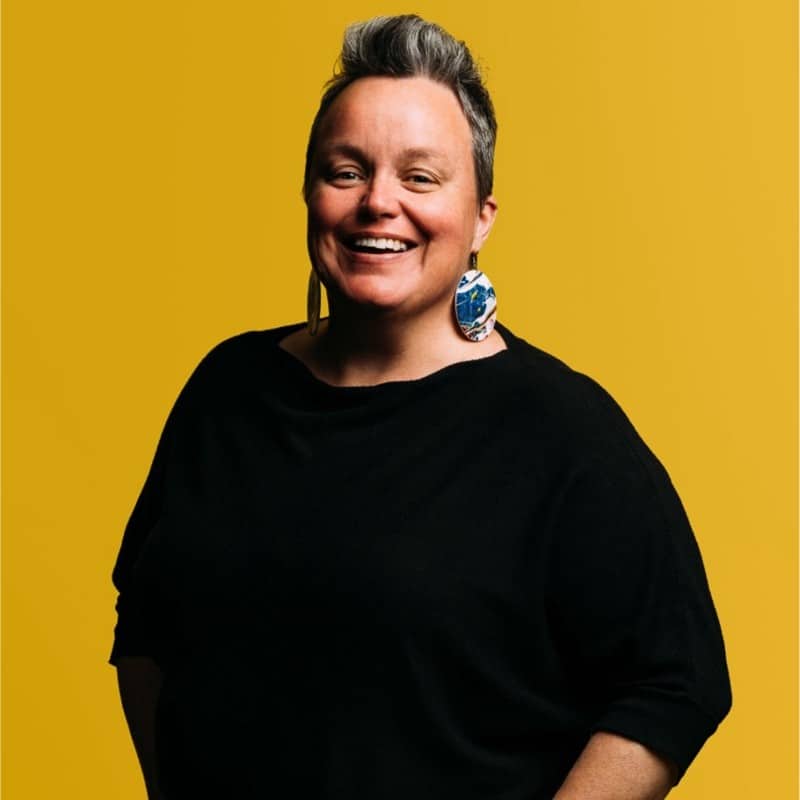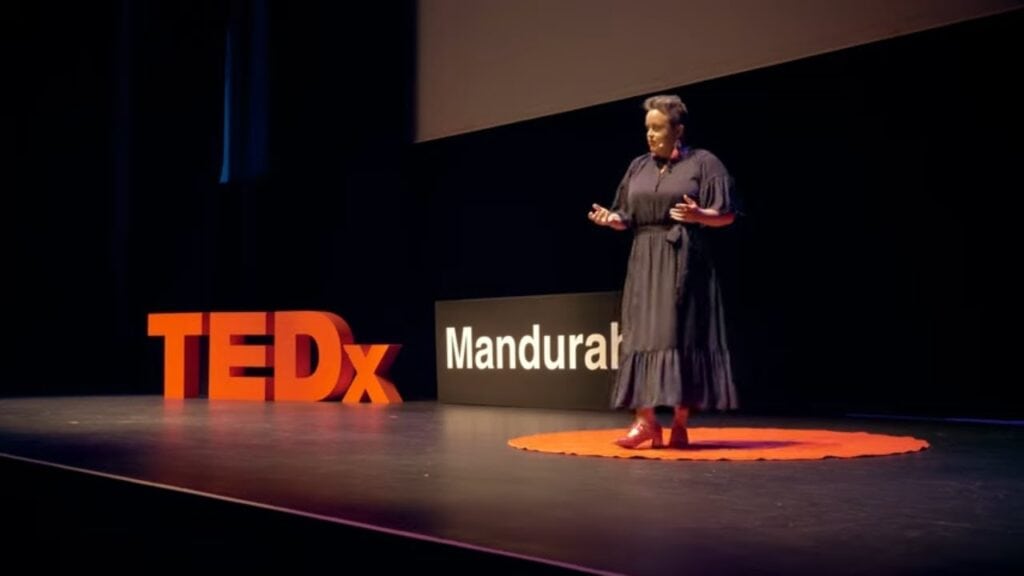Clare Gibellini believes that when you are offered a seat at the table, you open up and ask for a spare. She knows the more of us that share our lived experience and advocate for improved opportunities for the disability community, the stronger our voices are. Clare’s advocacy ethos and abundance of experience in the disability sector has platformed her as one of Australia’s leading figures in disability employment and entrepreneurship.

Formally, you may know Clare as a TedX speaker, board director, the Co-Chair of the Oversight Council for the Australian Federal Government’s National Autism Strategy, a member of the National Disability Insurance Agency’s Equity and Inclusion Reference Group, and the Deputy Chair for the WA Ministerial Advisory Council on Disability. The disability community knows her as someone who enables their dreams to be possible, as her work focuses on improving economic opportunities for people with disabilities and championing human rights both domestically and internationally.
Clare humbly spoke with WDEN entrepreneurs and The Adaptable CEO Podcast co-hosts Tiffani and Anja about her career progression, advocacy, disability inclusion, dreaming big and so much more. Listen to the full podcast episode here. Some key learnings from Clare:
What consumes the mind, is reflected in how we live our lives and our future trajectory. Clare, what are the three things you think about the most?
- Changing the way we as a community have been working. The focus is always on us as people with disability trying to make ourselves more adaptable and more employable. But it’s really beyond time that we flip the lid on that and start looking at, what do we need to do to support the employers to be more open? What do we need to do to make seats on a board available to us and not just for ticking a box in a diversity kind of way but to be really meaningfully sought out and contributing.
- Disability employment, microbusinesses and funding them. What did we learn from previous work with microenterprises, what do we need to change, and how do we make it more accessible? We’ve got an opportunity to find seed funding for people when they start their own business, but that’s not national. So how do you make that available? How do you get governments to invest in people starting their own small business because it’s a massively valuable skill set you learn when you run your own business, but traditionally, it’s not necessarily something that funders have really thought about putting a lot of money into because they don’t necessarily see the value for our community.
- Supporting Emergency Services Workers and Volunteers with Disability. I’m starting to do work in what’s called the disability inclusive Disaster Risk Reduction and emergency management space and some friends and I are banding together and starting a new organisation, supporting emergency services workers and volunteers with disability and so we’ll be launching that this year.
In your TEDX talk, you spoke about an experience where you were working on a project to develop businesses with people with disability, but those funding the project ultimately believed it wouldn’t be successful as the entrepreneurs were thought of as “too disabled”. Can you share with our audience why there is the perception that people who are ‘too disabled’ can’t succeed in business?
There are a few parts to why people still think that way.
There’s not exposure to the capability and the capacity that we have: There’s a very big perception still by the community that people with disability are apparently inherently ‘vulnerable’ and we need looking after. That comes from decades and decades of things like the charity model where like we know charities would look after those “poor disabled people” and things like that, and we’re not included in schools.
Traditional thinking around how to run a business: When the lack of exposure is coupled with traditional thinking around the running of businesses and the things that people have to do and to run a successful business informs people’s attitudes towards entrepreneurs with disabilities.
Visibility of PwD running successful businesses: There’s not a massive amount of visibility of people with disability, running their own business. In the past, we’ve had people with disability running their own business, but they weren’t necessarily set up to be businesses in their own right, they might have been set up to be something that that person could do to fill in their time. For example, they might be making a product that if they didn’t have a disability, nobody would purchase because it’s not really up to standard.

Do you think that entrepreneurship can be one of the keys to economic freedom and independence for people?
Absolutely, for so many reasons. We can run our businesses in the way that suits us. So we can build the business ways of working around our own needs, for example, if my business is providing off site admin services, I can do that in the middle of the night if I’m a night owl or you can build your business around your fluctuating needs.
Being a business owner is meaningful. When you meet someone for the first time, they ask, “What do you do?” And when you can say “I run my own business.” There’s that instant well, “you must be pretty capable”. So people running their own business contributes to that societal idea that we are capable.
Additionally, running your own business requires a lot of employability skills, just like having a job does. But you’ve got the freedom to develop it at your own rate, and putting that on your resume is really powerful. So, it might not be forever that you run your own business, but you’ll develop those skills which make you employable, which then leads to economic freedom.
It’s also a really good tool for connection and inclusion amongst communities. For example, people who go to the same market and have their stall at the same market time and time again, become part of that market family.
What advice would you give to your younger self with everything you know now?
Well, the first thing I would do would say stop and be kinder to yourself. Stop telling yourself these things that you’re telling yourself because you’re limiting yourself.
The second thing I would have told myself is it’s okay if your trajectory doesn’t look like everybody else’s, because you’ll get where you want to be. Even if you don’t know where that is yet. I’ve ended up here by accident, but I love it.
The other probably would be to say yes, more often. Don’t be afraid to say yes. Very early on people would ask me to do things and I would say, “oh no, I can’t do that”. Because I didn’t believe in myself that I could. And so I missed out on opportunities. Over the last five or so years as I’ve learned to say yes more often, then that’s where those opportunities and those incredible experiences have come, because I’ve been more open to saying yes.
A cheeky fourth (because I don’t follow scripts) is if you don’t ask the answers already no. We always go through this, “I’m not going to ask for what I need”. But then I’m in exactly the same place as I had never asked. If the answer is no the answer’s no, but at least you know that you tried. We get so afraid of wanting to talk to the people that we look up to. But hey, guess what, they’ve got just as much impostor syndrome as we have! And there’s someone that they’re looking up to that they’re too afraid to talk to. So, if you don’t ask, you’re already at No!
You can connect with Clare here – https://www.linkedin.com/in/clare-gibellini-653b98142/
Listen to the full episode, and more on The Adaptable CEO – available on Apple Podcasts, Spotify and where you listen to your podcasts.
